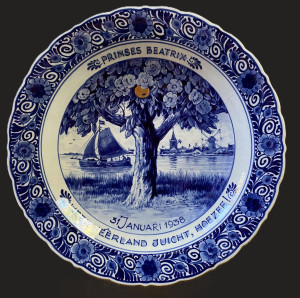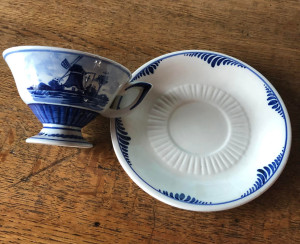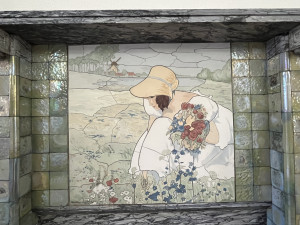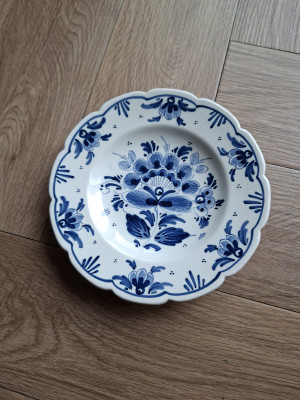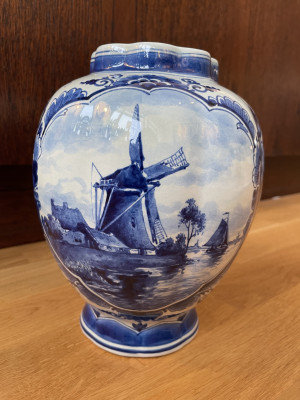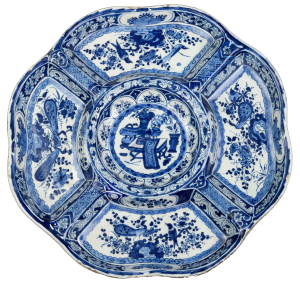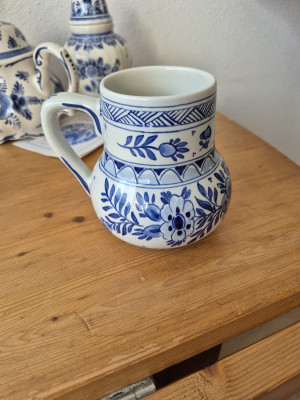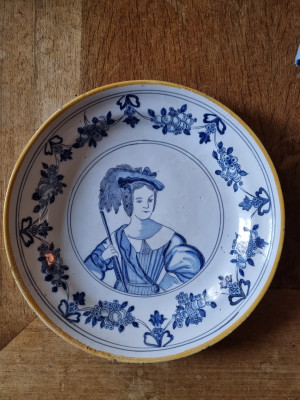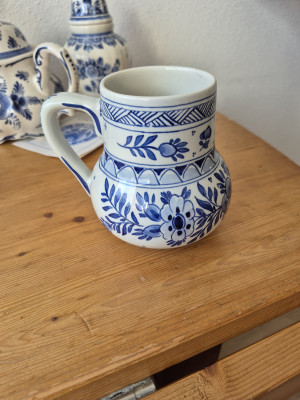Shared objects
Last comments
Rond 1900 waren er twee cruciale figuren die de artistieke richting van De Porceleyne Fles bepaalden en vaak de ontwerpen leverden voor dit soort tableaus:
Adolf le Comte (1850-1921): Hij was de artistiek leider van de fabriek. Hij was een drijvende kracht achter de vernieuwing van het Delftse aardewerk en ontwierp vele tableaus. Gezien de stijl (Art Nouveau, invloeden van landschappen en genrevoorstellingen) is het zeer goed mogelijk dat dit (gebaseerd op) een ontwerp van hem is.
Leon Senf (1860-1940): Hij was een van de belangrijkste en meest getalenteerde plateelschilders en ontwerpers die decennialang bij de fabriek werkte. Hij was meester in zowel klassieke als moderne stijlen en heeft talloze tableaus gesigneerd of in zijn stijl laten uitvoeren.
U zou kunnen contact opnemen met de Porceleyne fles ( Royal Delft ). Zij beheren het erfgoed van Joost Thooft & Labouchere. Soms zijn er oude ontwerptekeningen of catalogi bewaard gebleven waarin dit specifieke tableau wordt genoemd.
mvg Franky
In reply to Thank you so much for you’re… by JoRo
The shape of the vase was certainly characteristic of the period. However, the landscape with the windmill can still be seen today in their production on vases, plates, cups, etc. The windmill is very typical of the Netherlands, hence.
Below are a few examples of contemporary hand-painted pottery.
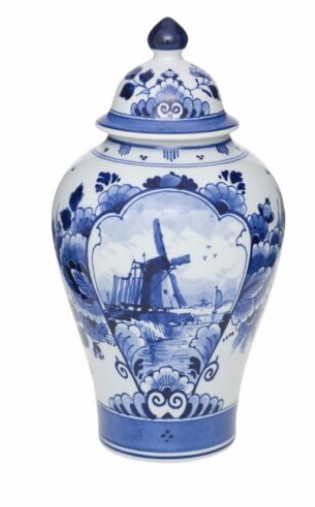
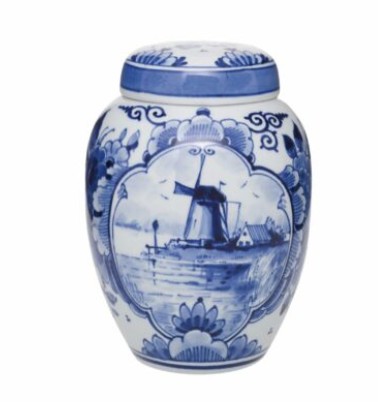
This vase was painted by two painters in 1934 (BD). Theo van Lingen (1893-1945) probably painted the landscape and G. van Heijenoort (1891-1940) the border decoration. It is an "A" design that at the time was sold slightly cheaper due to, for example, a flaw in the glaze, the painting, or other matters.
An 'A' or 'B' above a model or article number? Then it concerns a quality/price classification, especially from the crisis years. Usually stamped and also painted.
kind regards Franky
In reply to Goede avond, bedankt voor uw… by DD
dit is helaas een voorbeeld van hoe dergelijke stukken erfgoed verloren gaan en er steeds minder overblijven. Ook ik heb enkele stukken kunnen redden van de steen en keramiekbak. Lichtpuntje is dat ik toch merk dat er hernieuwde interesse begint te groeien, mede door programma's als van onschatbare waarde, tussen kunst en kitch en stukken van mensen. Hopelijk zet de trend zich voort.
In reply to Oké ook Goed is er mms… by sonjavVelsen
Helaas is dit geen verkoopsite. U kunt het beter aanbieden op daartoe gerichte platformen. Succes !
mvg
Ter info: uw bordje is hoogstwaarschijnlijk hiernaar gekopieerd.
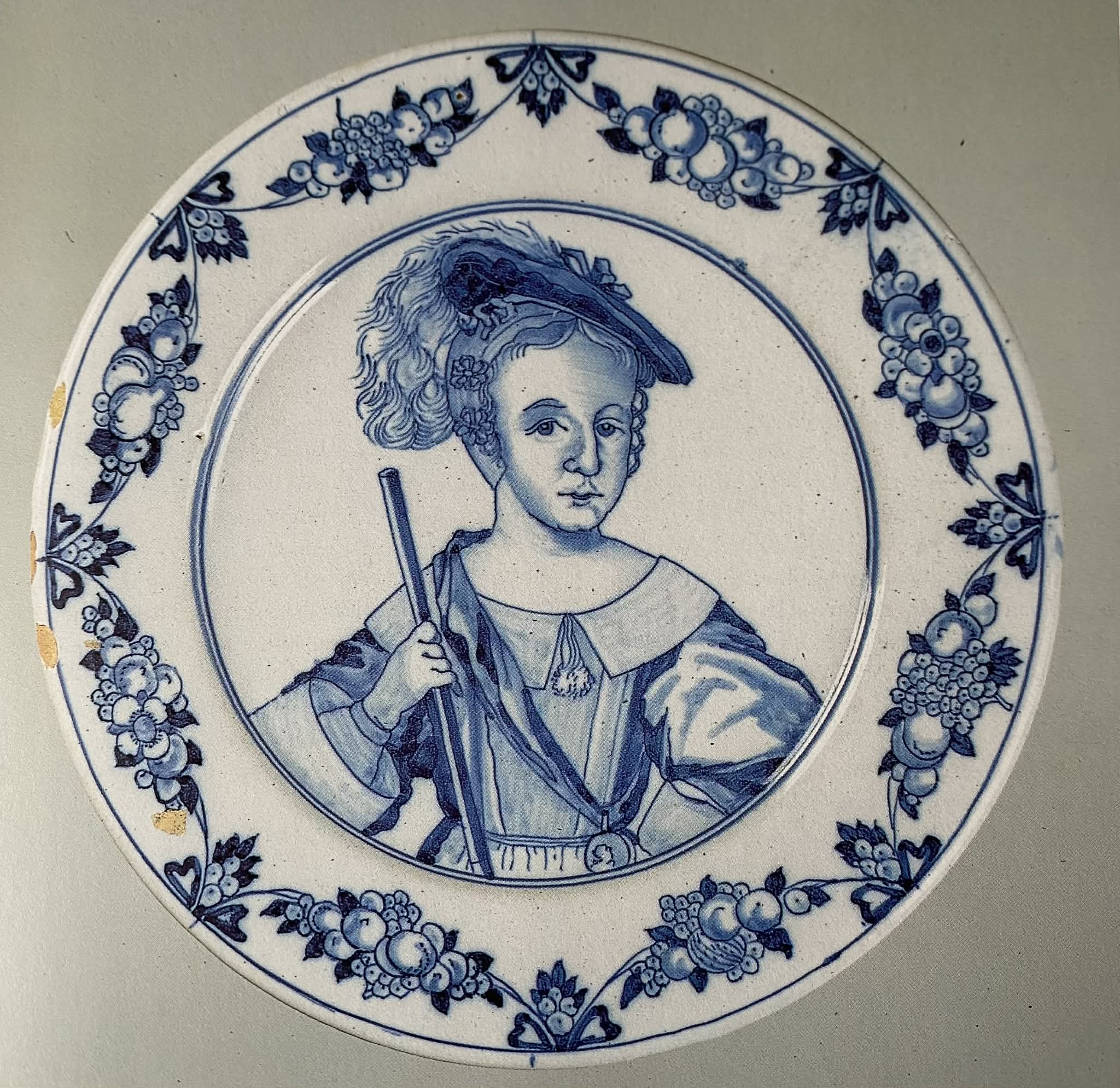
bron : gedateerd Delfts aardewerk / Rijksmuseum / pag 15 inventarisnummer 3133 / 20,5 cm / met op de achterzijde 1658
https://id.rijksmuseum.nl/200112209
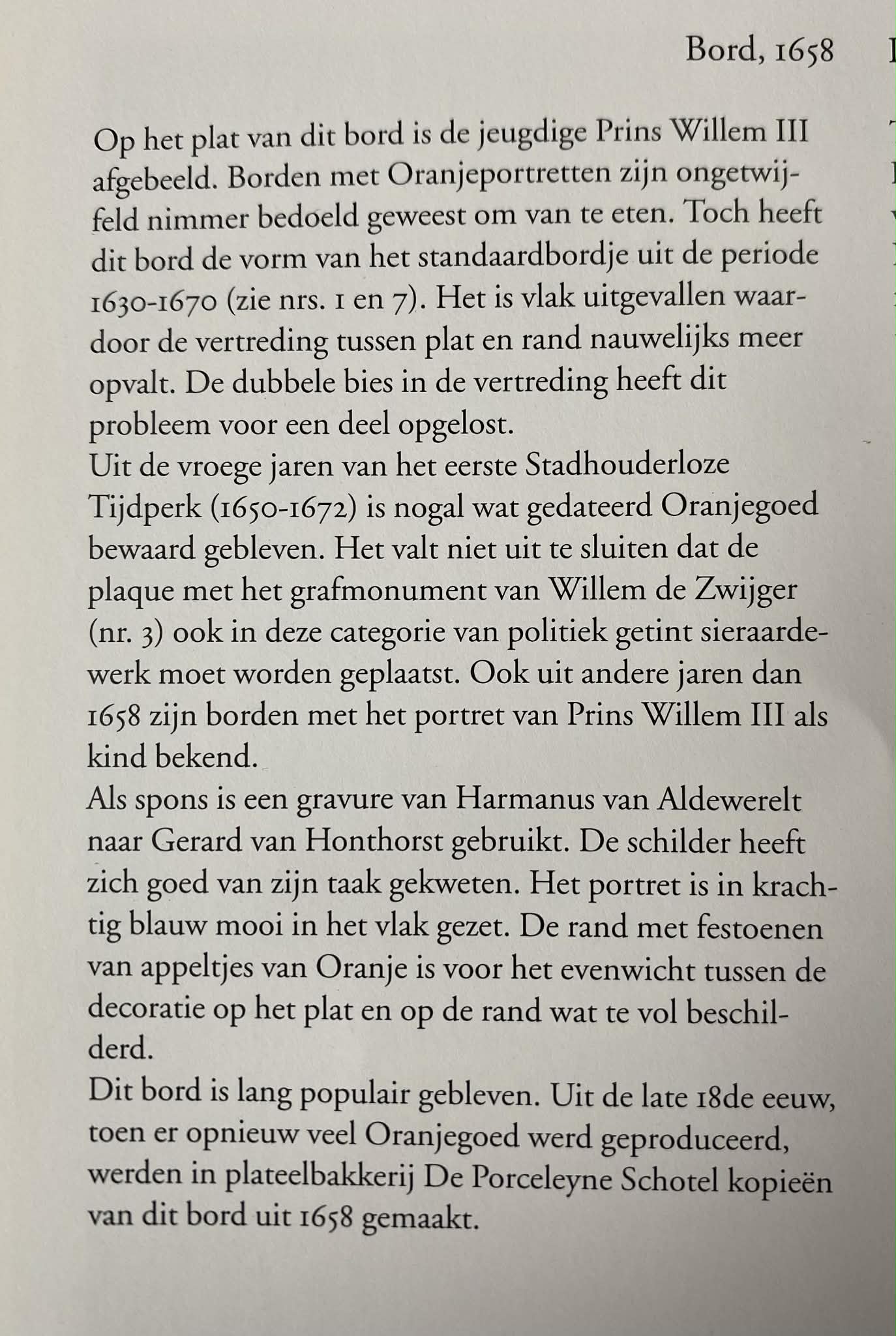
mvg Franky
Lijkt mij authentiek te zijn. zie ook : https://delftsaardewerk.nl/merk/lve
Over de waarde wordt - zoals u diende aan te vinken - hier helaas niet gesproken.
Mooi item trouwens. Sweetmeats verwijst naar zoetigheden zoals geconfijt fruit, bonbons en allerhande kleine zoete versnaperingen.
mvg
Deze is gemaakt in 1984 en geschilderd door J.H. van Willigen die er schilderde van 1947 tot 1994. het nummer 1090 is een intern volgnummer.
mvg Franky
beste,
Zoals u zich diende akkoord te stellen worden waarden hier helaas niet besproken.
mvg Franky
